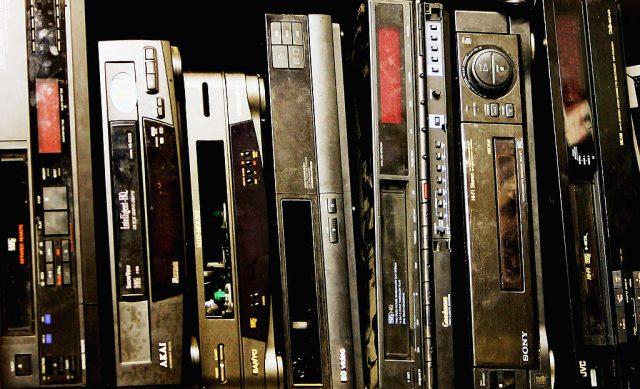
40 years after the first VHS video cassette recorder rolled off the production line, the last known company making the devices is ceasing production. According to Japanese newspaper Nikkei, Funai Electric, a Japanese consumer electronics company, will give up on the format by the end of the July after 30 years of production.
Declining sales, plus a difficulty in obtaining the necessary parts, prompted Funai Electric to cease production. While the Funai brand might not be well-known in the west, the company sold VCRs under the more familiar Sanyo brand in China and North America.
Funai Electric began production of VCRs in 1983 following the unsuccessful launch of its own CVC format in 1980. While CVC had its strengths—its quarter-inch tape made its machines smaller and lighter than VHS machines, which used half-inch tape—VHS and Betamax were strong competitors.
At its peak, Funai Electric sold as many as 15 million VCRs per year, but last year only sold 750,000 units. That VCRs were sold at all still comes as something of a surprise, not only because VCR has been superseded by two far superior formats—DVD and Blu-ray—but hard disk-based personal video recorders have rendered its one advantage, the ability to record content easily, obsolete.
Betamax players, which were the chief competitor of VCRs back in the 1980s, were discontinued back in 2002. However, tapes were made up until November 2015, when Sony finally announced that Betamax tapes would stop being produced in Japan. While losing the home-recording war, Betamax kind of lives on: Betamax was the basis for Betacam, which is still used in broadcasting.
While most people prefer the look of modern video digital video over VHS, there is a rapidly growing group of collectors seeking out old tapes. Some of the rarer horror movies are worth as much as £1,500.
"These are movies that feel too cleaned-up on DVD and Blu-ray, as if they were never meant to look that good," one collector told The Independent. "You can see the mistakes they made and the bad makeup and everything. Watching them on VHS is closer to the old drive-in or grindhouse theatre, the way the director intended it to look."
Listing image by Ian Waldie/Getty Images
reader comments
104